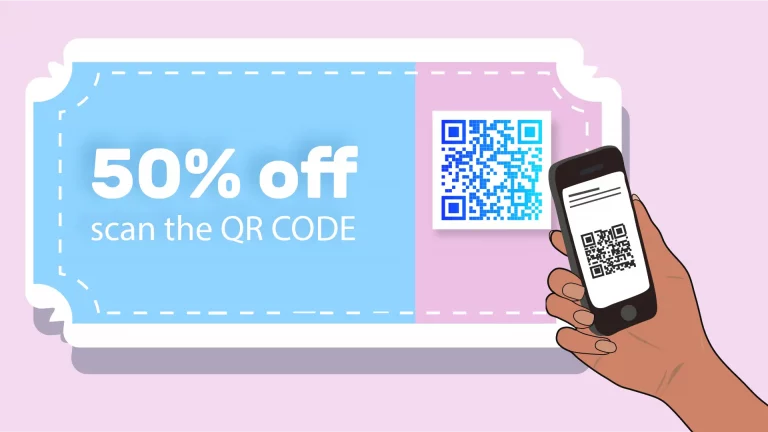Loyalty System: The Secret to Structure Stronger Relationships with Your Customers
Loyalty System Insights: Rewarding Consumers and Growing Your Brand
Loyalty programs have actually advanced beyond simple transactional incentives; they now function as tactical devices for fostering deeper consumer partnerships and boosting brand name loyalty. By comprehending the nuances of various reward systems, businesses can tailor their techniques to satisfy diverse consumer choices. The effect of a well-implemented commitment program extends beyond consumer retention, driving advocacy and shaping brand perception in a competitive market. Nonetheless, the performance of these programs depends upon specific engagement methods and measurable outcomes. What key variables should brand names think about to optimize their commitment efforts?
Recognizing Loyalty Programs

By examining this information, businesses can customize their offerings to better meet consumer requirements, creating an extra tailored buying experience. This customization is crucial in constructing count on and psychological connections, which are vital for brand loyalty. Commitment programs can enhance consumer involvement through unique deals, benefits, and experiences that resonate with consumers, strengthening their dedication to the brand name.
In addition, loyalty programs can add to enhanced consumer lifetime value, as completely satisfied and dedicated consumers are a lot more most likely to make regular purchases and refer others. Inevitably, when executed effectively, loyalty programs not only incentivize instant sales however additionally grow a community of brand name advocates, consequently driving sustainable growth for services in a competitive market.
Kinds of Reward Solutions
Different sorts of benefit systems exist within loyalty programs, each made to satisfy various customer preferences and organization objectives. One preferred technique is the points-based system, where clients earn points for each acquisition, which can later be redeemed for items or discounts. This version urges repeat purchases and fosters a feeling of achievement as consumers accumulate factors.
One more efficient kind is tiered incentives, which incentivizes customers to reach greater levels of loyalty. As customers proceed via tiers, they open significantly beneficial advantages, consequently enhancing client engagement and retention. This system rewards both first spending and ongoing loyalty, making clients feel valued.
Cashback rewards are additionally prevalent, using customers a percent of their acquisition back as cash or credit score. This uncomplicated technique attract price-sensitive customers and can drive much more regular purchases.
Lastly, experiential benefits supply one-of-a-kind experiences, such as exclusive occasions or very early accessibility to items. These benefits produce remarkable interactions with the brand, promoting deeper emotional links.
Each of these systems provides unique benefits, enabling businesses to tailor their commitment programs to line up with their customer demographics and calculated goals.

Benefits of Applying Commitment Programs
Carrying out commitment programs supplies numerous benefits that can significantly enhance a service's relationship with its customers. By gratifying repeat acquisitions, companies promote a feeling of belonging, urging clients to return much more often.
Additionally, commitment programs make it possible for services to collect beneficial data on client preferences and buying actions. This info can be analyzed to customize advertising initiatives, bring about more effective and personalized campaigns. The understandings gained can aid businesses recognize patterns, enhance product offerings, and boost client complete satisfaction.
Furthermore, commitment programs frequently produce an one-upmanship in jampacked markets. By developing a strong loyalty framework, companies can differentiate themselves, attracting clients that focus on brands that worth their commitment.
Finally, a well-structured commitment program can foster brand name advocacy. Dedicated consumers are much more most likely to advise a brand to others, properly turning them into brand ambassadors. Finally, executing commitment programs is a critical relocation that can yield considerable benefits, ultimately driving long-lasting company development and success.
Approaches for Effective Engagement
Effective interaction is critical for taking full advantage of the advantages of commitment programs and making certain sustained client interest. Loyalty System. To cultivate meaningful connections, services should take on a multi-faceted method that stresses interaction, worth, and personalization
First, leveraging consumer data to create tailored experiences enhances engagement. By assessing acquisition history and preferences, brand names can offer individualized rewards or referrals that reverberate with individual consumers. This targeted strategy not only raises fulfillment but also motivates repeat interactions.
2nd, regular and clear communication is necessary. Using different networks, such as email newsletters, social media sites, and mobile applications, ensures clients are notified regarding promos, benefits, and program updates. Regular messaging keeps the brand top-of-mind and reinforces the value of commitment involvement.
Last but not least, integrating gamification components can dramatically increase interaction. Features such as factor build-up, obstacles, and tiered benefits produce a sense of success and exhilaration, motivating clients to engage more actively with the program.
Including these strategies cultivates a devoted customer base, driving sustained growth and brand name fondness while maximizing the potential of commitment programs. By concentrating on effective interaction, organizations can strengthen links and boost the overall customer experience.
Gauging Success and ROI
To precisely evaluate the performance of commitment programs, businesses have to establish clear metrics for measuring success and return on financial investment (ROI) Secret efficiency signs (KPIs) such as client retention rate, typical order value, and the frequency of repeat acquisitions offer measurable understandings right into program efficiency.
Furthermore, tracking the total effect on consumer lifetime worth (CLV) is crucial. An effective loyalty program need to raise CLV by cultivating consumer loyalty and motivating repeat purchases (Loyalty System). Organizations should likewise consider the expense of implementing and maintaining the program against the income generated with loyal clients
Another important approach is to analyze consumer involvement metrics, such as participation prices in loyalty tasks and the redemption of benefits. This data enables business to improve their offerings and improve customer experiences.
Furthermore, making use of sophisticated analytics and client comments can even more support the evaluation of loyalty program performance. By incorporating qualitative understandings with quantitative data, services can adjust strategies to maximize efficiency. Eventually, a detailed measurement framework will certainly make it possible for organizations to comprehend truth value view of their loyalty programs and make he said educated choices for future growth.
Final Thought
In verdict, loyalty programs function as an important system for improving customer engagement and cultivating brand commitment. By employing numerous reward frameworks and customized incentives, organizations can efficiently satisfy diverse customer choices. The calculated execution of these programs not only raises customer retention yet also transforms completely satisfied customers right into advocates, contributing to brand development and competitive advantage. Inevitably, the successful implementation of commitment systems is important in making the most of client life time value and accomplishing long-lasting business success.
Loyalty programs have developed beyond simple transactional benefits; they now offer as critical devices for cultivating much deeper consumer relationships and enhancing brand name commitment. As consumers proceed via rates, they open significantly beneficial benefits, thus enhancing customer involvement and retention. An effective loyalty program need to raise CLV by promoting client commitment and encouraging repeat purchases.In conclusion, loyalty programs serve as a vital mechanism for improving consumer involvement and fostering brand commitment. The strategic application of these programs not just raises client retention however additionally changes completely satisfied her response customers right into advocates, adding to brand development and affordable advantage.